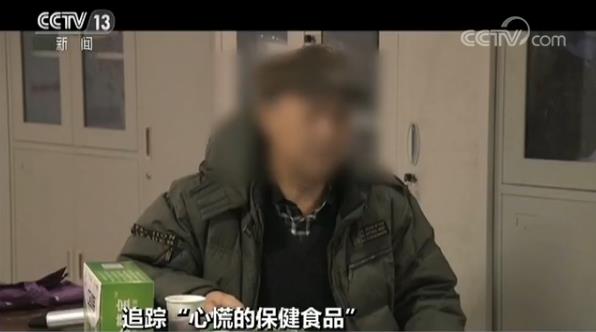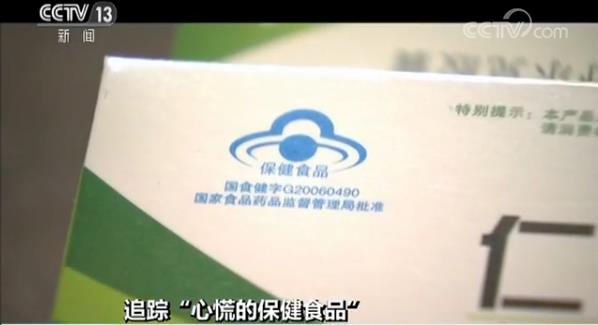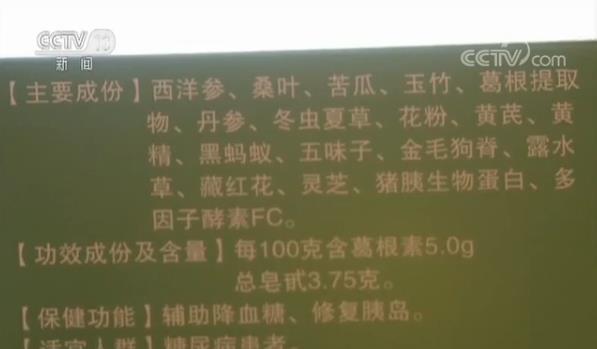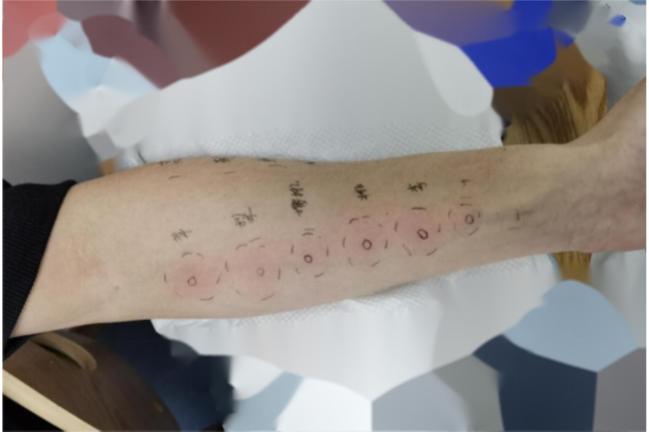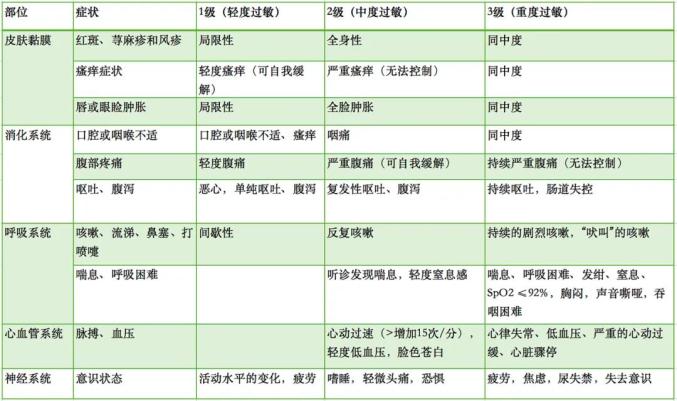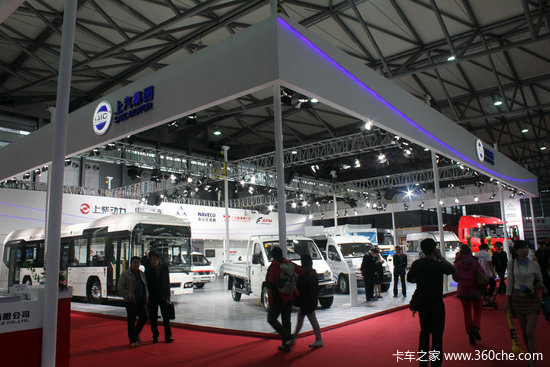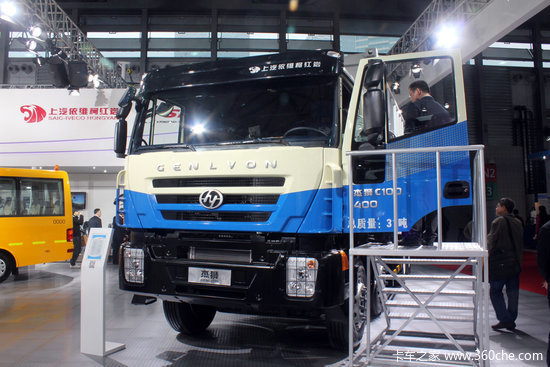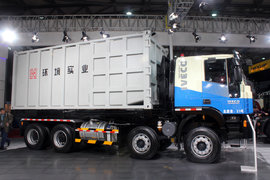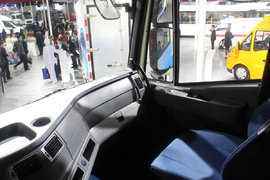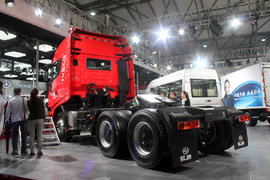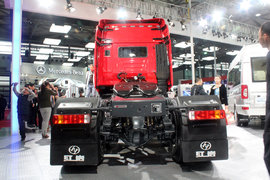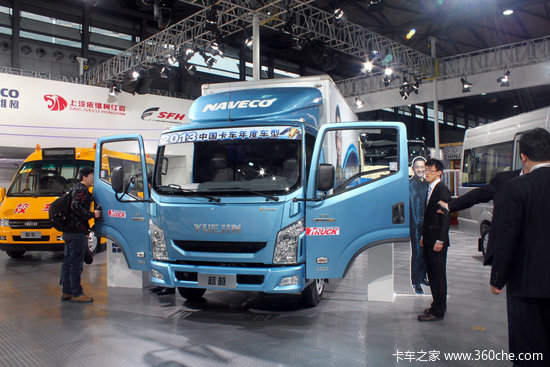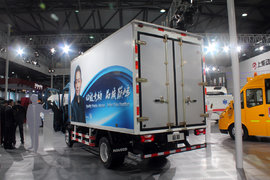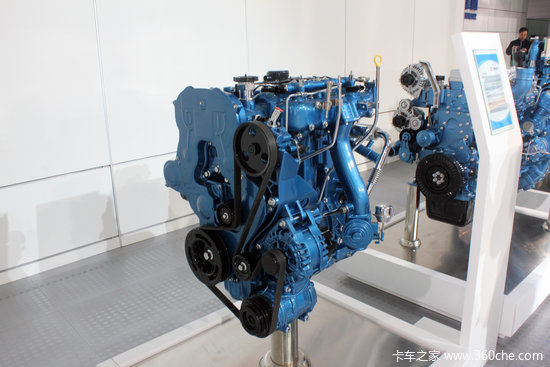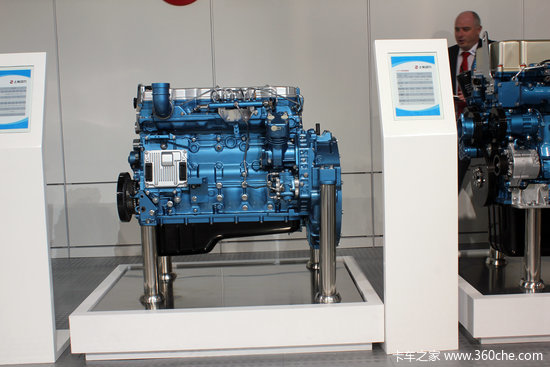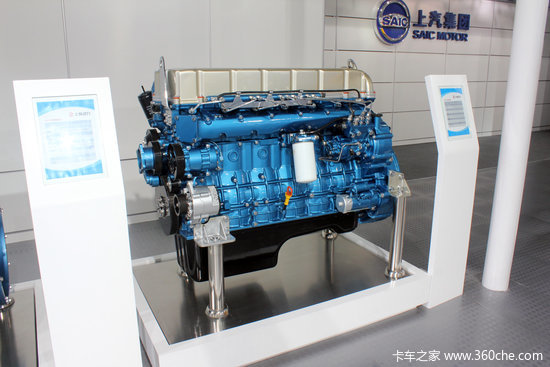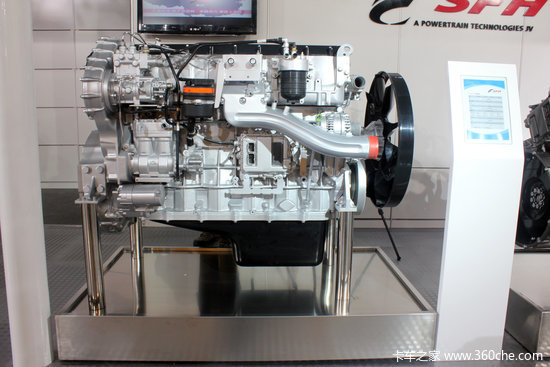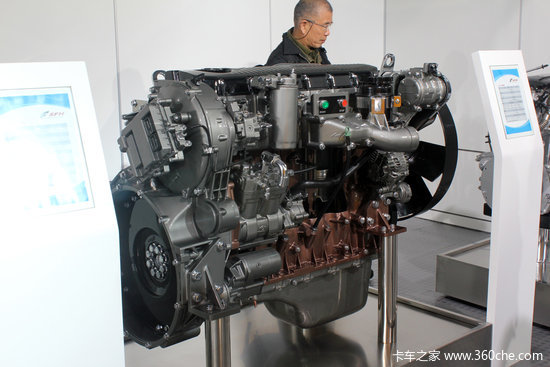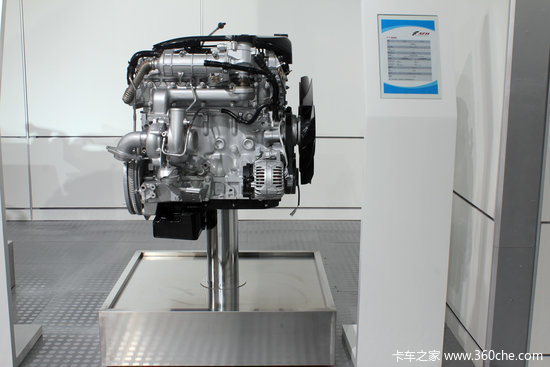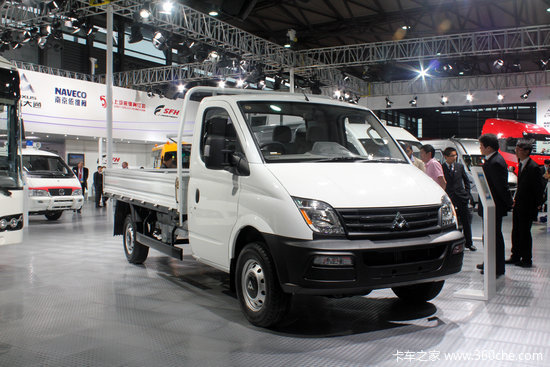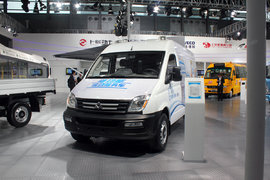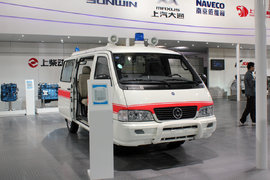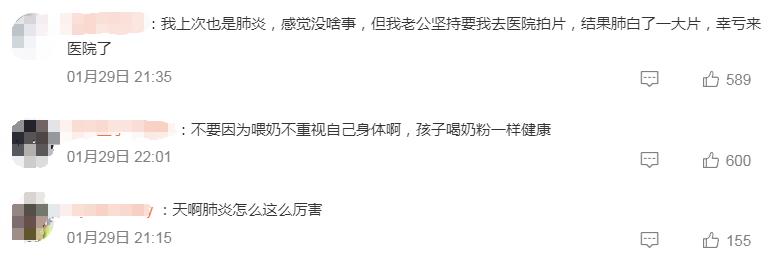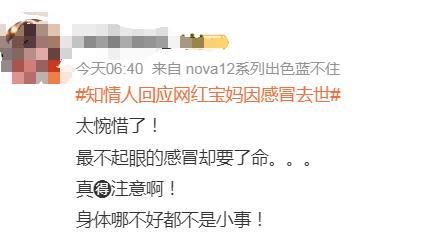Collection | Catalogue of Compilation of Inner-Party Laws and Regulations in the Communist Party of China (CPC)
I. party constitution
1. Constitution of the Communist Party of China
(The 19th National Congress of the Communist Party of China partially revised, adopted on October 24, 2017)
Second, the party’s organizational regulations
(1) Party organization
2. Regulations on the work of local committees in the Communist Party of China (CPC)
(Issued by the Central Committee of the Communist Party of China on December 25th, 2015)
3. Regulations of the Communist Party of China (CPC) Municipality on Working Organs (for Trial Implementation)
(Issued by the Central Committee of the Communist Party of China on March 1, 2017)
4 the Communist Party of China (CPC) branch work regulations (Trial)
(Issued by the Central Committee of the Communist Party of China on October 28, 2018)
5. Regulations on the Work of Rural Grassroots Organizations in the Communist Party of China (CPC)
(Issued by the Central Committee of the Communist Party of China on December 28, 2018)
6. the Communist Party of China (CPC) Party Working Regulations
(Issued by the Central Committee of the Communist Party of China on April 6, 2019)
7. Regulations of the Communist Party of China (CPC) Municipality on the Work of Grassroots Organizations of the Party and State Organs
(Issued by the Central Committee of the Communist Party of China on December 27, 2019)
Regulations of the Communist Party of China (CPC) Municipality on the Work of Grassroots Organizations of State-owned Enterprises (for Trial Implementation)
(Issued by the Central Committee of the Communist Party of China on December 30, 2019)
9. The Central Committee of the Communist Party of China (CCCPC) Work Regulations
(Issued by the Central Committee of the Communist Party of China on September 30, 2020)
10. Regulations on the work of grass-roots organizations in ordinary colleges and universities in the Communist Party of China (CPC)
(Issued by the Central Committee of the Communist Party of China on April 16, 2021)
11. Interim Provisions on Some Specific Issues of the Party’s Local Congresses at Various Levels
(Issued by the Organization Department of the CPC Central Committee on February 1, 1985)
(2) Inner-party elections
12. Regulations of the Communist Party of China (CPC) Municipality on the Election of Grassroots Organizations
(Issued by the Central Committee of the Communist Party of China on July 13, 2020)
13. Regulations of the Communist Party of China (CPC) Municipality on the Election of Local Organizations
(Issued by the Central Committee of the Communist Party of China on December 28th, 2020)
(III) Organizational work of the Party
14. Regulations of the Communist Party of China (CPC) Municipality on Organizational Work
(Issued by the Central Committee of the Communist Party of China on May 22, 2021)
(4) Symbol of the Party
15 the emblem and flag of the Communist Party of China (CPC) regulations
(Issued by the Central Committee of the Communist Party of China on June 26, 2021)
Third, the party’s leadership regulations
(A) the Party leads rural work
16. Regulations on Rural Work in the Communist Party of China (CPC)
(Issued by the Central Committee of the Communist Party of China on August 19, 2019)
(2) The establishment of the Party’s leading bodies
17. Regulations of the Communist Party of China (CPC) Municipality on the Establishment of Institutions
(Issued by the Central Committee of the Communist Party of China on August 5, 2019)
18. Provisions on statistical work of institutions (for Trial Implementation)
(Issued by the Office of the Central Organization Establishment Committee on March 16, 2010)
19. Measures for filing organizational matters
(Issued by the Office of the Central Organization Establishment Committee on December 12, 2013)
(3) The Party leads the construction of the rule of law
20. Regulations of the Communist Party of China (CPC) Municipality on Political and Legal Work
(Issued by the Central Committee of the Communist Party of China on January 13, 2019)
21. Measures for openly selecting legislators, judges and prosecutors from lawyers and legal experts.
(Issued by the General Office of the Central Committee of the CPC on June 2, 2016)
22 protection of judicial personnel to perform their statutory duties according to law.
(Issued by the General Offices of the General Office of the Central Committee of the CPC and the State Council on July 21, 2016)
23. The principal responsible persons of the party and government perform the duties of the first responsible person to promote the rule of law.
(Issued by the General Offices of the General Office of the Central Committee of the CPC and the State Council on November 30, 2016)
(4) Party leaders publicize ideological and cultural work.
24 Party committees (party groups) measures for the implementation of the network security work responsibility system
(Issued by the General Office of the Central Committee of the CPC on August 15th, 2017)
25 Interim Measures for the administration of online names of party and government organs, institutions and social organizations
(Issued by the Office of the Central Organization Establishment Committee and the Ministry of Industry and Information Technology on February 20, 2014)
26 party and government organs website audit, qualification review and website logo management measures
(Issued by the Office of the Central Organization Establishment Committee and the Office of the Central Network Security and Informatization Leading Group on August 22, 2014)
27 national high-end think tank management measures (Trial)
(Issued by the Propaganda Department of the CPC Central Committee on November 26th, 2015)
28 Interim Measures for the supervision and administration of state-owned assets of central cultural enterprises
(Issued by the Propaganda Department of the CPC Central Committee and the Ministry of Finance on January 22, 2017)
(5) Social governance under the leadership of the Party.
29 improve the implementation of the comprehensive management of social security leadership responsibility system.
(Issued by the General Offices of the General Office of the Central Committee of the CPC and the State Council on February 27, 2016)
30 measures for the implementation of the responsibility system for letters and visits
(Issued by the General Offices of the General Office of the Central Committee of the CPC and the State Council on October 8, 2016)
31 local party and government leading cadres safety production responsibility system provisions
(Issued by the General Offices of the General Office of the Central Committee of the CPC and the State Council on April 8, 2018)
32 local party and government leading cadres food safety responsibility system provisions
(Issued by the General Offices of the General Office of the Central Committee of the CPC and the State Council on February 5, 2019)
(6) the party leads the United front work.
33. Regulations on the work of socialist colleges
(Issued by the Central Committee of the Communist Party of China on December 22, 2018)
34 the Communist Party of China (CPC) United Front Work Regulations
(Issued by the Central Committee of the Communist Party of China on December 21, 2020)
Fourth, the party’s own construction laws and regulations
(A) comprehensive
35 provisions on the implementation of the responsibility system for building a clean and honest government.
(Issued by the Central Committee of the Communist Party of China and the State Council on November 10, 2010)
36. Party committees (leading groups) shall implement the provisions on comprehensively and strictly administering the party’s main responsibility.
(Issued by the General Office of the Central Committee of the CPC on March 9, 2020)
(B) the party’s political construction
37. Some guidelines on political life within the Party.
(Adopted at the Fifth Plenary Session of the Eleventh Central Committee in communist party, China on February 29, 1980)
38. Some Guidelines on Political Life within the Party under the New Situation
(Adopted at the Sixth Plenary Session of the 18th Central Committee of communist party, China on October 27th, 2016) 39. Regulations on Request for Report on Major Matters in the Communist Party of China (CPC).
(Issued by the Central Committee of the Communist Party of China on January 31, 2019)
40. The party committees of the central and state organs and departments shall consult the working committees of the central and state organs for work regulations on reporting.
(Issued by the Working Committee of Central and State Organs on June 10, 2020)
(C) the party’s ideological construction
41 the Communist Party of China (CPC) Party School (School of Administration) Work Regulations
(Issued by the Central Committee of the Communist Party of China on October 25, 2019)
42 the Communist Party of China (CPC) Party Committee (Party Group) Theory Learning Center Group Learning Rules
(Issued by the General Office of the Central Committee of the CPC on January 30, 2017)
43 central and state organs to implement the "the Communist Party of China (CPC) Party Committee (Party Group) theoretical learning center group learning rules" implementation measures.
(Issued by the Working Committee of Central and State Organs on September 21, 2018)
44 central and state organs cadres and workers’ ideological dynamic analysis report method
(Issued by the Working Committee of Central and State Organs on April 29, 2020)
(D) the party’s organizational construction
45. the Central Committee of the Communist Party of China’s Supplementary Provisions on Dealing with the Party Membership and Party Age during party member’s Leaving the Party before the Founding of the People’s Republic of China
(the Central Committee of the Communist Party of China issued on May 14, 1982)
46 provisions on the recommendation of leading cadres by local party committees to local state organs tui
(the Central Committee of the Communist Party of China issued on January 12, 1990)
47. Regulations on the Education and Training of Cadres
(Issued by the Central Committee of the Communist Party of China on October 14th, 2015)
48 Party and state organs at or above the county level in party member leading cadres democratic life will be a number of provisions.
(Issued by the Central Committee of the Communist Party of China on December 23, 2016)
49. Regulations on the Selection and Appointment of Leading Cadres of the Party and Government
(Issued by the Central Committee of the Communist Party of China on March 3, 2019)
50 members of the Communist Party of China (CPC) education management regulations
(Issued by the Central Committee of the Communist Party of China on May 6, 2019)
51 Interim Provisions on the Resignation of Leading Cadres of the Party and Government
(the General Office of the Central Committee of the CPC issued on April 8, 2004)
52. The plenary session of the local committee of the Party shall vote on the candidates to be appointed and recommended by the leading bodies of the Party committees and governments at the next lower level.
(the General Office of the Central Committee of the CPC issued on April 8, 2004) 53. Interim Provisions on the term of office of party and government leading cadres
(the General Office of the Central Committee of the CPC issued on June 10, 2006)
54 Party and government leading cadres exchange work regulations
(the General Office of the Central Committee of the CPC issued on June 10, 2006)
55 interim provisions on the withdrawal of leading cadres of the party and government
(the General Office of the Central Committee of the CPC issued on June 10, 2006)
56 Interim Provisions on the Administration of Leaders of Financial Enterprises in China
(Issued by the General Office of the Central Committee of the CPC on November 16th, 2011)
57. Detailed Rules for the Development of party member in the Communist Party of China (CPC)
(Issued by the General Office of the Central Committee of the CPC on May 28th, 2014)
58 Interim Provisions on the administration of leaders of public institutions
(Issued by the General Office of the Central Committee of the CPC on May 28th, 2015)
59. Promote the appointment and dismissal of leading cadres (for Trial Implementation)
(Issued by the General Office of the Central Committee of the CPC on July 19th, 2015)
Provisions on the administration of professional and technical civil servants (for Trial Implementation)
(Issued by the General Offices of the General Office of the Central Committee of the CPC and the State Council on July 8, 2016)
61 administrative law enforcement civil servants management regulations (Trial)
(Issued by the General Offices of the General Office of the Central Committee of the CPC and the State Council on July 8, 2016)
62 provisions on the administration of the appointment system of civil servants (for Trial Implementation)
(Issued by the General Offices of the General Office of the Central Committee of the CPC and the State Council on September 19, 2017)
63. Regulations on the work of cadres and personnel files
(Issued by the General Office of the Central Committee of the CPC on November 20, 2018)
64. Civil servants’ positions and ranks are stipulated in parallel.
(Issued by the General Office of the Central Committee of the CPC on March 19, 2019)
65 Provisions on Several Issues Concerning Communist party member’s Going Abroad or Going to Hong Kong and Macao for Private Affairs
(Issued by the Organization Department of the CPC Central Committee on September 1, 1981)
66. Interim Provisions on the Statistical Work of Cadres
(Issued by the Organization Department of the CPC Central Committee and the Ministry of Personnel on May 11, 1992)
67. Provisions of the Communist Party of China (CPC) Municipality on inner-party statistical work
(Issued by the Organization Department of the CPC Central Committee on January 3, 1996)
68 Interim Provisions on the probationary period for leading cadres of the Party and government
(Issued by the Organization Department of the CPC Central Committee on February 6, 2001)
69. Interim Provisions on Letters and Visits of the Party Committee Organization Department
(Issued by the Organization Department of the CPC Central Committee on June 27th, 2006)
70 provisions on the collection, use and management of party dues in the Communist Party of China (CPC)
(Issued by the Organization Department of the CPC Central Committee on February 4, 2008)
71. Provisions on the collection and filing of cadres and personnel archives
(Issued by the Organization Department of the CPC Central Committee on July 16, 2009)
72 China Pudong, Jinggangshan, Yan ‘an Cadre College management approach
(Issued by the Organization Department of the CPC Central Committee on July 27th, 2012)
73. Measures for the administration of the training of "Light of the West" visiting scholars
(Issued by the Organization Department of the CPC Central Committee, Ministry of Education, Ministry of Science and Technology and China Academy of Sciences on March 29th, 2014)
74 measures for the administration of the work of the doctoral service group
(Issued by the Organization Department of the CPC Central Committee and the Central Committee of the Communist Youth League on February 2, 2015)
75 measures for the adjustment of the management system of party building work after the decoupling of the chamber of commerce of the national trade association from the administrative organ (for Trial Implementation)
(Issued by the Organization Department of the CPC Central Committee on September 11, 2015)
76 Interim Measures for the administration of leaders of institutions of higher learning
(Issued by the Organization Department of the CPC Central Committee and the Ministry of Education on January 13, 2017)
77 Interim Measures for the administration of leaders in primary and secondary schools
(Issued by the Organization Department of the CPC Central Committee and the Ministry of Education on January 13, 2017)
78 Interim Measures for the administration of leaders of scientific research institutions
(Issued by the Organization Department of the CPC Central Committee and the Ministry of Science and Technology on January 13, 2017)
79 Interim Measures for the administration of leaders of public hospitals
(Issued by the Organization Department of the CPC Central Committee and the National Health and Family Planning Commission on January 13, 2017)
80. Interim Measures for the management of leaders of institutions that publicize ideological and cultural systems
(Issued by the Organization Department and Propaganda Department of the CPC Central Committee on January 13, 2017)
81 measures for the implementation of the post-holding talks of the party Committee secretaries, deputy secretaries and disciplinary Committee secretaries of the central and state organs and departments
(Issued by the Working Committee of Central and State Organs on November 6, 2018)
82 provisions of the central and state organs on strict party organization and life system (for Trial Implementation)
(Issued by the Working Committee of Central and State Organs on April 22, 2019)
83. Working Rules for Party Groups of Central and State Organs (for Trial Implementation)
(Issued by the Working Committee of Central and State Organs on April 22, 2019)
84 measures for the administration of professional and technical civil servants’ rank setting (Trial)
(Issued by the Organization Department of the CPC Central Committee on April 24, 2019)
85 administrative measures for the establishment of civil servants’ ranks in administrative law enforcement (Trial)
(Issued by the Organization Department of the Central Committee of the Communist Party of China on April 24, 2019) 86. Measures for the Evaluation of Professional and Technical Qualifications of Professional and Technical Civil Servants (Trial)
(Issued by the Organization Department of the CPC Central Committee on April 24, 2019)
87. Provisions on post grading of newly recruited civil servants
(Issued by the Organization Department of the CPC Central Committee on April 24, 2019)
88. Provisions on the Employment of Civil Servants
(Issued by the Organization Department of the CPC Central Committee on November 26, 2019)
89. Provisions on the Transfer of Civil Servants
(Issued by the Organization Department of the CPC Central Committee on November 26, 2019)
90. Provisions on the training of civil servants
(Issued by the Organization Department of the CPC Central Committee on November 26, 2019)
91 regulations on the administration of cadres’ education and training students
(Issued by the Organization Department of the CPC Central Committee on November 28, 2019)
92. Provisions on the scope of civil servants
(Issued by the Organization Department of the CPC Central Committee on March 3, 2020)
93. Measures for the registration of civil servants
(Issued by the Organization Department of the CPC Central Committee on March 3, 2020)
94 measures for the administration of posts, ranks and grades of civil servants
(Issued by the Organization Department of the CPC Central Committee on March 3, 2020)
95. Refer to the measures for examination and approval of units managed by People’s Republic of China (PRC) Civil Service Law.
(Issued by the Organization Department of the CPC Central Committee on March 3, 2020)
96 measures for the collection, use and management of party dues of grass-roots party organizations of central and state organs (for Trial Implementation)
(Issued by the Working Committee of Central and State Organs on April 29, 2020)
97. Provisions on the Transfer of Civil Servants
(Issued by the Organization Department of the CPC Central Committee on December 28th, 2020)
98. Provisions on the withdrawal of civil servants
(Issued by the Organization Department of the CPC Central Committee on December 28th, 2020)
99. civil servants to resign stipulates
(Issued by the Organization Department of the CPC Central Committee on December 28th, 2020)
100. Provisions on dismissal of civil servants
(Issued by the Organization Department of the CPC Central Committee on December 28th, 2020)
(V) Construction of the Party’s Work Style
101 the Central Committee of the Communist Party of China on several provisions of the central level departments to send people to check the work.
(the Central Committee of the Communist Party of China issued on May 18, 1953)
102 provisions of the Central Committee of the Communist Party of China and the State Council on the living conditions of senior cadres.
(the Central Committee of the Communist Party of China and the State Council issued on November 13, 1979)
103. The party and government organs practise strict economy and oppose waste regulations.
(Issued by the Central Committee of the Communist Party of China and the State Council on November 18th, 2013)
104 regulations of the Communist Party of China (CPC) Municipality on the openness of party affairs (for Trial Implementation)
(Issued by the Central Committee of the Communist Party of China on December 20, 2017)
105 measures for the administration of national literary and art press and publication awards
(General Offices of the General Office of the Central Committee of the CPC and the State Council issued on March 1, 2005)
106 measures for the administration of festival activities (for Trial Implementation)
(Issued by the General Offices of the General Office of the Central Committee of the CPC and the State Council on May 29, 2012)
107 provisions of the party and government organs on the administration of domestic official reception
(Issued by the General Offices of the General Office of the Central Committee of the CPC and the State Council on December 1, 2013)
108 Interim Provisions on Prohibiting the Establishment of Private Clubs in Historical Buildings, Parks and Other Public Resources
(the General Office of the Central Committee of the CPC and the State Council General Offices forwarded on October 19, 2014)
109 measures for the administration of office buildings of party and government organs
(Issued by the General Offices of the General Office of the Central Committee of the CPC and the State Council on December 5, 2017)
110 measures for the administration of official vehicles of party and government organs
(Issued by the General Offices of the General Office of the Central Committee of the CPC and the State Council on December 5, 2017)
111 appraisal standards in recognition of activities management approach
(Issued by the General Offices of the General Office of the Central Committee of the CPC and the State Council on December 21, 2018)
(VI) Party discipline construction
112. Several Provisions of the Commission for Discipline Inspection of the Central Committee of the Communist Party of China on Prohibiting Violation of Policies and Embezzlement in Accepting Donations from Overseas Chinese
(the Central Committee of the Communist Party of China forwarded on October 4, 1979)
113. Provisions of the Central Committee of the Communist Party of China and the State Council on Further Stopping Party and Government Organs and Cadres from Doing Business and Running Enterprises
(the Central Committee of the Communist Party of China and the State Council issued on February 4, 1986)
114. the Communist Party of China (CPC) Integrity and Self-discipline Guidelines
(Issued by the Central Committee of the Communist Party of China on October 18th, 2015)
115. Several Provisions of the General Office of the General Office of the Central Committee of the CPC and the State Council on the issue of retired (divorced) cadres of party and state organs at or above the county level running enterprises through business.
(General Office of the General Office of the Central Committee of the CPC and the State Council issued on October 3, 1988)
116 provisions on decoupling the party and government organs from the economic entities they run.
(General Offices of the General Office of the Central Committee of the CPC and the State Council forwarded on October 9, 1993)
117 provisions on the implementation of the registration system for gifts received by the staff of the party and state organs in domestic exchanges
(General Offices of the General Office of the Central Committee of the CPC and the State Council issued on April 30, 1995)
118. The organs of political science and law retain certain provisions on standardized management of enterprises.
(General Offices of the General Office of the Central Committee of the CPC and the State Council issued on May 14, 1999)
119 provisions on personal securities investment behavior of party and government organs.
(General Offices of the General Office of the Central Committee of the CPC and the State Council issued on April 3, 2001)
120 provisions on the integrity of leaders of state-owned enterprises
(Issued by the General Offices of the General Office of the Central Committee of the CPC and the State Council on July 1, 2009)
121 rural grassroots cadres to perform their duties in a clean manner (Trial)
(Issued by the General Offices of the General Office of the Central Committee of the CPC and the State Council on May 23, 2011)
122 Provisions on the Commission for Discipline Inspection to Assist Party Committees in Organizing and Coordinating Anti-corruption Work (for Trial Implementation)
(Issued by the Commission for Discipline Inspection of the CPC Central Committee on July 26, 2005)
123 provisions of the Commission for Discipline Inspection of the Central Committee of the Communist Party of China on strictly prohibiting the use of his position to seek illegitimate interests
(Issued by the Commission for Discipline Inspection of the CPC Central Committee on May 29th, 2007)
Five, the party’s supervision and protection laws and regulations
(1) Supervision
124 the Communist Party of China (CPC) inner-party supervision regulations
(Adopted at the Sixth Plenary Session of the 18th Central Committee of communist party, China on October 27th, 2016)
125 the Communist Party of China (CPC) inspection work regulations
(Issued by the Central Committee of the Communist Party of China on July 1, 2017)
126 Interim Measures for admonishing conversations and letters to leading cadres in party member.
(Issued by the General Office of the Central Committee of the CPC on December 19th, 2005)
127 Interim Provisions on Reporting on Work and Honesty of Leading Cadres in party member
(Issued by the General Office of the Central Committee of the CPC on December 19th, 2005)
128 local Party committee members and members of the Commission for Discipline Inspection to carry out intra-party inquiries and inquiries (Trial)
(Issued by the General Office of the Central Committee of the CPC on April 22, 2007)
129 leading cadres to report personal related matters
(Issued by the General Offices of the General Office of the Central Committee of the CPC and the State Council on February 8, 2017)
130 provisions on the audit of natural resources assets of leading cadres (for Trial Implementation)
(Issued by the General Offices of the General Office of the Central Committee of the CPC and the State Council on September 19, 2017)
131 provisions on the prevention and punishment of statistical fraud and fraud supervision.
(Issued by the General Offices of the General Office of the Central Committee of the CPC and the State Council on August 24, 2018) 132. Work Rules for Supervision and Discipline of Discipline Inspection Organs in communist party, China
(Issued by the General Office of the Central Committee of the CPC on December 28, 2018)
133. The construction of a government under the rule of law and the responsibility to implement the provisions on the work of inspectors
(Issued by the General Offices of the General Office of the Central Committee of the CPC and the State Council on April 15, 2019)
134 central ecological environmental protection inspectors work regulations
(Issued by the General Offices of the General Office of the Central Committee of the CPC and the State Council on June 6, 2019)
135 the main leading cadres of the party and government and the main leaders of state-owned enterprises and institutions economic responsibility audit provisions
(Issued by the General Offices of the General Office of the Central Committee of the CPC and the State Council on July 7, 2019)
136 discipline inspection and supervision organs to deal with the work rules of accusation.
(Issued by the General Office of the Central Committee of the CPC on January 21, 2020)
137. Regulations of the Party’s Disciplinary Inspection Organs on the Trial of Cases
(Issued by the Commission for Discipline Inspection of the CPC Central Committee on July 14, 1987)
138 Interim Provisions of the Commission for Discipline Inspection of the Central Committee of the Communist Party of China on the work of discipline inspection of industrial enterprises owned by the whole people
(Issued by the Commission for Discipline Inspection of the CPC Central Committee on November 5, 1990)
139. Measures for handling cases for soliciting opinions undertaken by the case trial room of the Central Commission for Discipline Inspection
(Issued by the General Office of the Commission for Discipline Inspection of the CPC Central Committee on June 13, 1991)
140 provisions of the Central Commission for Discipline Inspection of the Communist Party of China on the working procedures for hearing disciplinary cases in party member.
(Issued by the Commission for Discipline Inspection of the CPC Central Committee on July 13, 1991)
141 communist party, China, the disciplinary inspection organ complaint work regulations.
(Issued by the Commission for Discipline Inspection of the CPC Central Committee on August 22, 1993)
142. Regulations of communist party Municipality on the Work of Case Inspection of Discipline Inspection Organs.
(Issued by the Commission for Discipline Inspection of the CPC Central Committee on March 25, 1994)
143 detailed rules for the implementation of the regulations on the work of case inspection of the discipline inspection organs in communist party, China
(Issued by the Commission for Discipline Inspection of the CPC Central Committee on March 25, 1994)
144 measures for the administration of case files of discipline inspection and supervision organs
(Issued by the Commission for Discipline Inspection of the CPC Central Committee, the Ministry of Supervision and the State Archives Bureau on July 1, 1998)
145 Interim Measures for the determination of property prices involved in the investigation and handling of cases by discipline inspection and supervision organs
(Issued by the Commission for Discipline Inspection of the CPC Central Committee, the National Development and Reform Commission, the Ministry of Supervision and the Ministry of Finance on December 10, 2010)
146. The organization has worked out the provisions on the acceptance of the "12310" report.
(Issued by the Office of the Central Organization Establishment Committee on April 12, 2011)
147 provinces, autonomous regions and municipalities directly under the central government, the party committee of the county (city, district, flag) inspection work implementation measures.
(Issued by the Commission for Discipline Inspection of the Central Committee of the Communist Party of China and the Organization Department of the Central Committee of the Communist Party of China on August 2, 2012) 148. Detailed implementation rules for organizing personnel departments to remind, inquire and admonish leading cadres.
(Issued by the Organization Department of the CPC Central Committee on June 28th, 2015)
149. Organize the personnel department to reply to the letter of inquiry of leading cadres and adopt the feedback method.
(Issued by the Organization Department of the CPC Central Committee on April 23, 2018)
(2) Evaluation
150 regulations on the assessment of leading cadres of the party and government
(Issued by the General Office of the Central Committee of the CPC on April 7, 2019)
151 measures for the assessment of civil servants at ordinary times (for Trial Implementation)
(Issued by the Organization Department of the CPC Central Committee on November 26, 2019)
152 Party Committee (Party Group) secretary pays attention to the assessment methods of grass-roots party building work (Trial)
(Issued by the Organization Department of the CPC Central Committee on December 30, 2019)
153 central and state organs at the grass-roots level party organization secretary to grasp the party building work debriefing appraisal implementation measures (Trial)
(Issued by the Central and State Organs Working Committee on April 28, 2020)
154. Civil servant assessment regulations
(Issued by the Organization Department of the CPC Central Committee on December 28th, 2020)
(3) rewards and punishments
155 the Communist Party of China (CPC) City, the party meritorious honor recognition regulations.
(Issued by the Central Committee of the Communist Party of China on August 8, 2017)
156 national meritorious honor recognition regulations
(Issued by the Central Committee of the Communist Party of China and the State Council on August 8, 2017)
157. Regulations of the Communist Party of China (CPC) Municipality on Disciplinary Actions
(Issued by the Central Committee of the Communist Party of China on August 18, 2018)
158. the Communist Party of China (CPC) accountability regulations
(Issued by the Central Committee of the Communist Party of China on August 25, 2019)
159 Interim Provisions on the implementation of accountability of party and government leading cadres
(Issued by the General Offices of the General Office of the Central Committee of the CPC and the State Council on June 30, 2009)
160 leading cadres to intervene in judicial activities, intervene in the handling of specific cases of records, notification and accountability provisions.
(Issued by the General Offices of the General Office of the Central Committee of the CPC and the State Council on March 18, 2015)
161 measures for investigating the responsibility of leading cadres of the party and government for ecological environment damage (for Trial Implementation)
(Issued by the General Offices of the General Office of the Central Committee of the CPC and the State Council on August 9, 2015)
162 party discussion and decision of party member punishment work procedures (Trial)
(Issued by the General Office of the Central Committee of the CPC on November 29, 2018) 163. Measures for Supervision, Inspection and Accountability of the Selection and Appointment of Cadres
(Issued by the General Office of the Central Committee of the CPC on May 13, 2019)
164 the Communist Party of China (CPC) city organization regulations (Trial)
(Issued by the General Office of the Central Committee of the CPC on March 19th, 2021)
165. Interim Provisions of the Commission for Discipline Inspection of the Central Committee of the Communist Party of China on the handling of Party membership and party discipline of party member who defected or left.
(Issued by the Commission for Discipline Inspection of the CPC Central Committee on July 18, 1990)
166 on the party and government organs at or above the county (Department) level of party member leading cadres in violation of the provisions of honesty and self-discipline to buy, replace the car behavior of the party discipline approach.
(Issued by the Commission for Discipline Inspection of the CPC Central Committee on August 26, 1996)
167 earthquake relief funds and materials management and use of violations of law and discipline punishment provisions
(Issued by the Commission for Discipline Inspection of the CPC Central Committee and the Ministry of Supervision on May 29, 2008)
168. Provisions on the record and accountability of cases involving internal personnel of judicial organs
(Issued by the Political and Legal Committee of the CPC Central Committee on March 29th, 2015)
169 measures for dealing with the problem of fraud in cadres’ personnel files (for Trial Implementation)
(Issued by the Organization Department of the CPC Central Committee on November 18th, 2015)
170 central and state organs to create a model of advanced units and pacesetter units selection and commendation measures (Trial)
(Issued by the Working Committee of Central and State Organs on July 3, 2020)
171. Provisions on Civil Servant Awards
(Issued by the Organization Department of the CPC Central Committee on December 28th, 2020)
(4) Protection of rights in party member
172. Regulations of members of the Communist Party of China (CPC) Municipality on the Protection of Rights
(Issued by the Central Committee of the Communist Party of China on December 25th, 2020)
173. Provisions of the Commission for Discipline Inspection of the CPC Central Committee and the Ministry of Supervision of the People’s Republic of China on the Protection of Informants and Accusers
(Issued by the Commission for Discipline Inspection of the CPC Central Committee and the Ministry of Supervision on January 19, 1996)
(five) the operation of the organs.
174. Regulations on the work of government archives
(General Office of the General Office of the Central Committee of the CPC and the State Council issued on April 28, 1983)
175 the Central Committee of the Communist Party of China Security Committee Office, the State Secrecy Bureau on the confidentiality management of state secret carriers.
(General Offices of the General Office of the Central Committee of the CPC and the State Council forwarded on December 7, 2000)
176 Interim Measures for the administration of electronic documents
(Issued by the General Offices of the General Office of the Central Committee of the CPC and the State Council on December 8, 2009) 177. Regulations of the Party and Government Organs on Handling Official Documents.
(Issued by the General Offices of the General Office of the Central Committee of the CPC and the State Council on April 16, 2012)
178 discipline inspection organs archives management regulations (Trial)
(Issued by the General Office of the Commission for Discipline Inspection of the CPC Central Committee on April 28, 1989)
179 discipline inspection and supervision organs handling confidentiality provisions
(Issued by the Commission for Discipline Inspection of the CPC Central Committee and the Ministry of Supervision on August 19, 1996)
(6) System construction guarantee
180. Regulations on the formulation of inner-party laws and regulations in the Communist Party of China (CPC)
(Issued by the Central Committee of the Communist Party of China on September 3, 2019)
181 the Communist Party of China (CPC) regulations and normative documents for the record review provisions.
(Issued by the Central Committee of the Communist Party of China on September 3, 2019)
182 provisions of the Communist Party of China (CPC) Municipality on the responsibility system for the implementation of inner-party laws and regulations (for Trial Implementation)
(Issued by the Central Committee of the Communist Party of China on September 3, 2019)
183 provisions of the Communist Party of China (CPC) Municipality on the interpretation of internal party laws and regulations
(Issued by the General Office of the Central Committee of the CPC on July 6, 2015)
Source: Law Press
Original title: "Collection | Catalogue of Inner-Party Regulations in the Communist Party of China (CPC)"
Read the original text







